- Home >
- Our Services >
- Employee Volunteering

Employee volunteering, also known as corporate volunteering or workplace volunteering, refers to the practice where employees of a company or organization volunteer their time and skills to participate in community service or charitable activities. These activities are typically organized or supported by their employer. For many years now, SoulAce has partnered with some of India's leading private and public sector enterprises and NGOs for employee volunteering activities.
Employee volunteering programs offer numerous benefits, both for the community and for the participating organizations and their employees. For employees, volunteering can enhance job satisfaction, foster personal and professional development, and strengthen their sense of purpose and belonging within the company. Additionally, companies benefit from improved employee morale, enhanced corporate reputation, and increased employee engagement and retention.
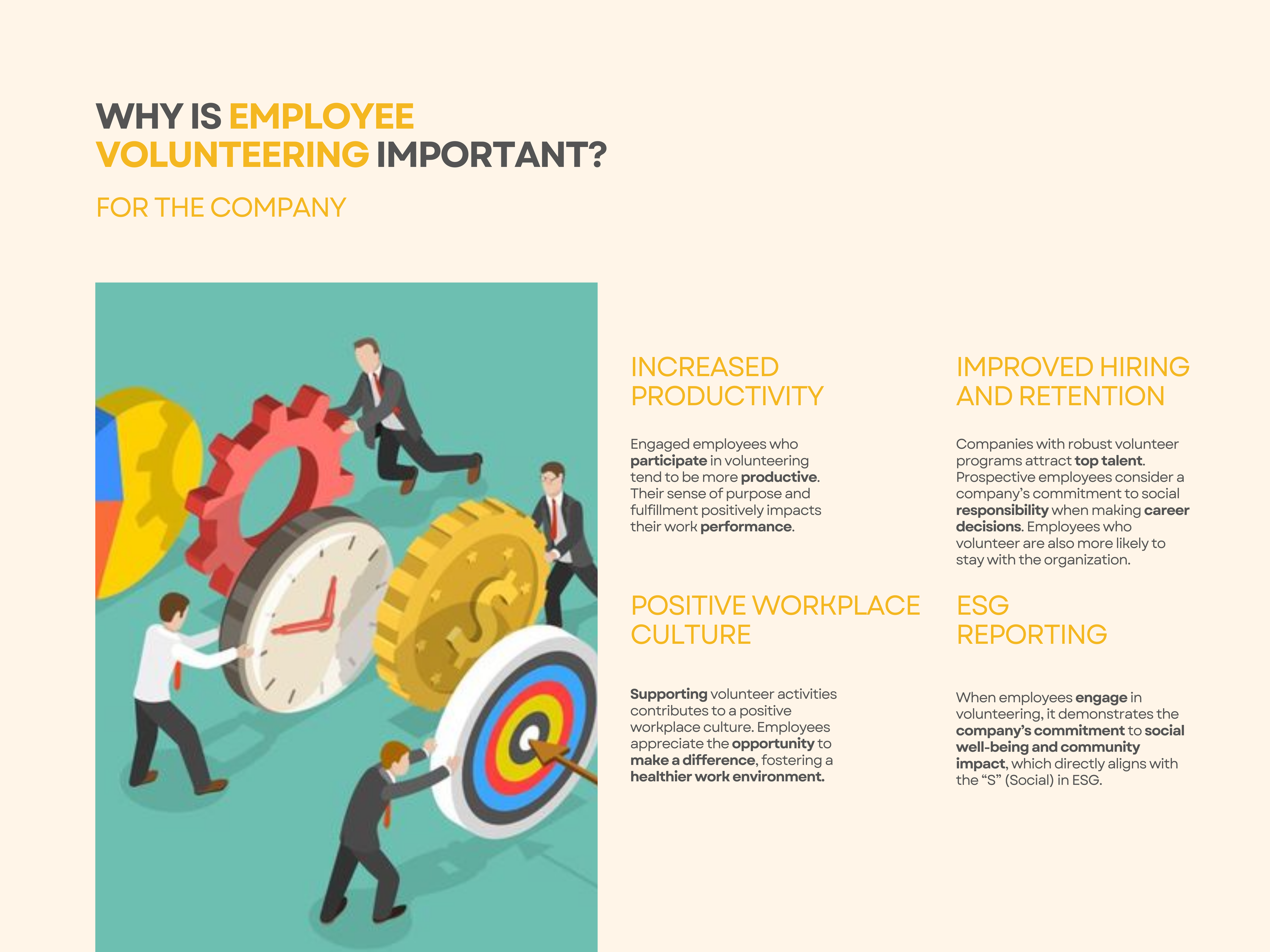
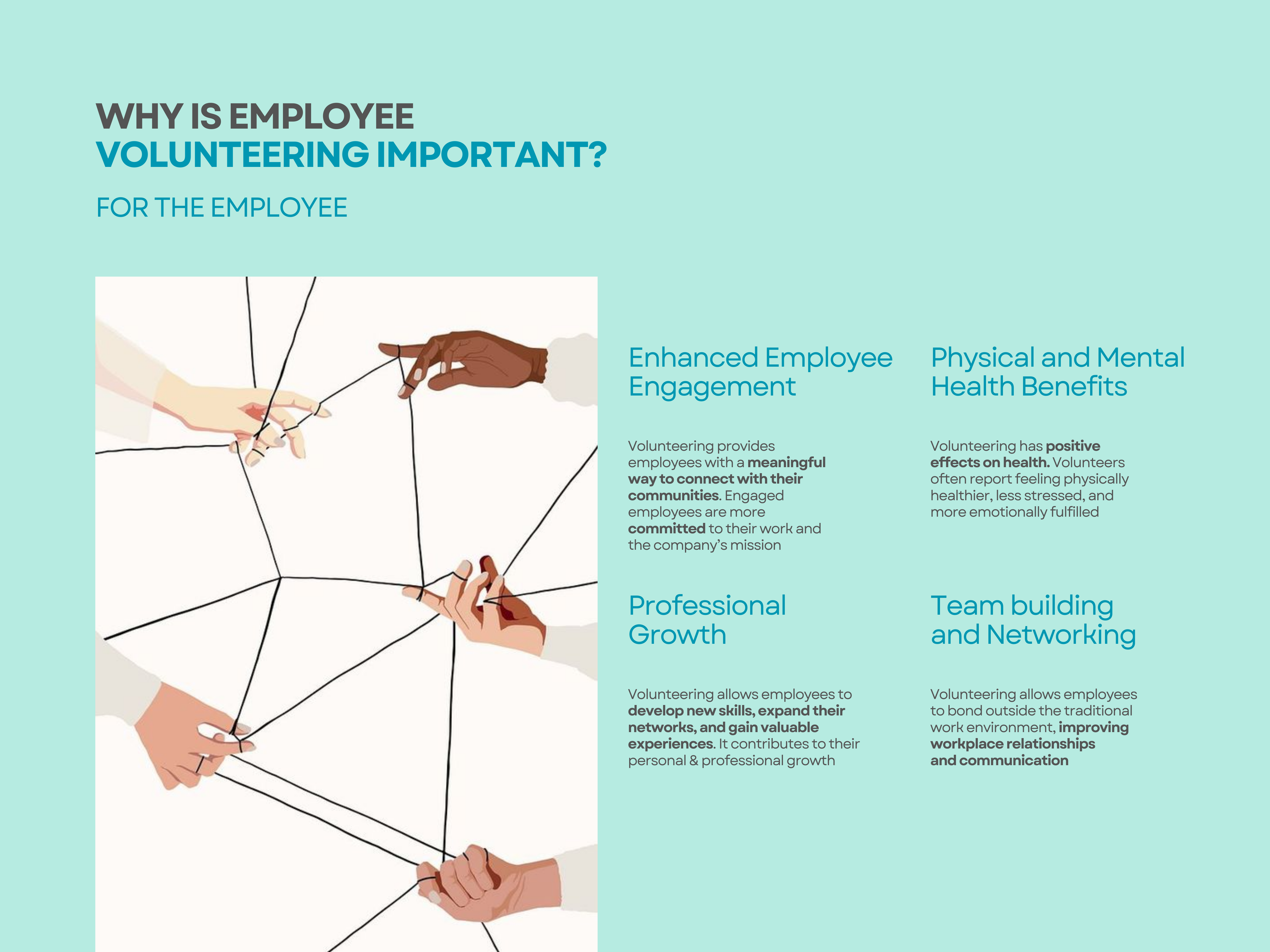
For over 15 years, SoulAce has been at the forefront of transforming workplace cultures through meaningful employee volunteering experiences. With a rich history of empowering companies to make a tangible difference in their communities, SoulAce stands out as the premier choice for organizations seeking to elevate their corporate social responsibility (CSR) initiatives.
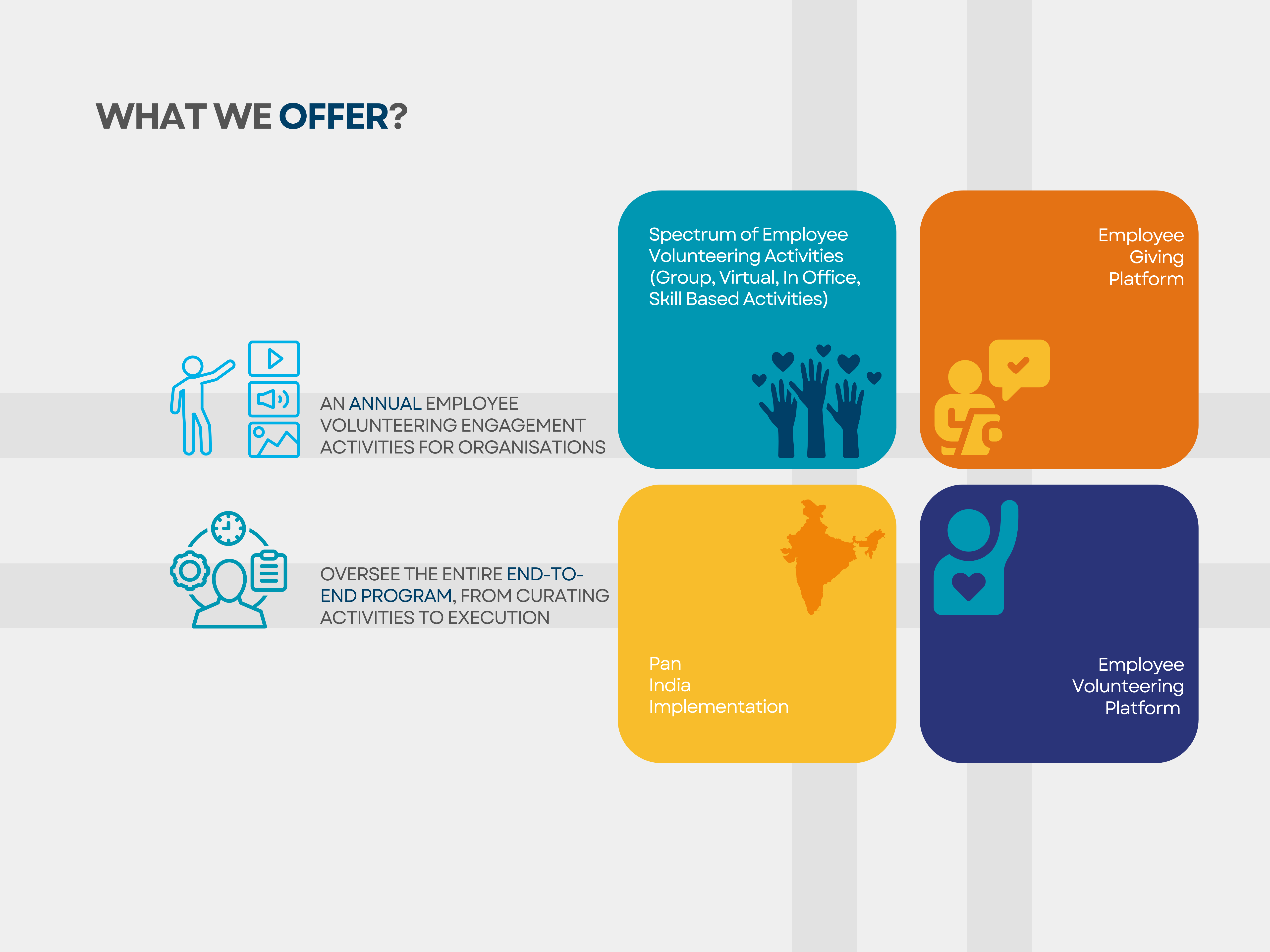
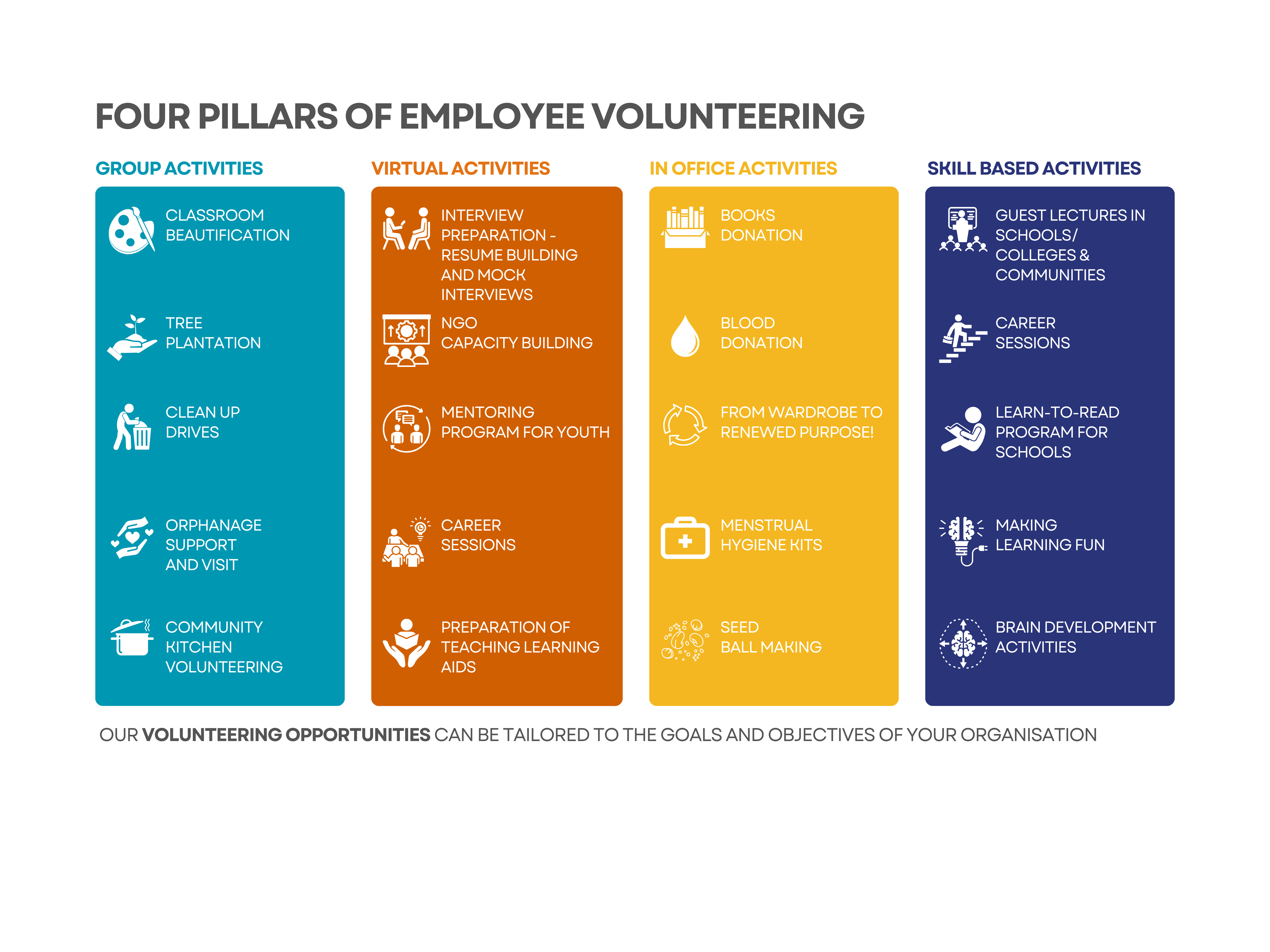
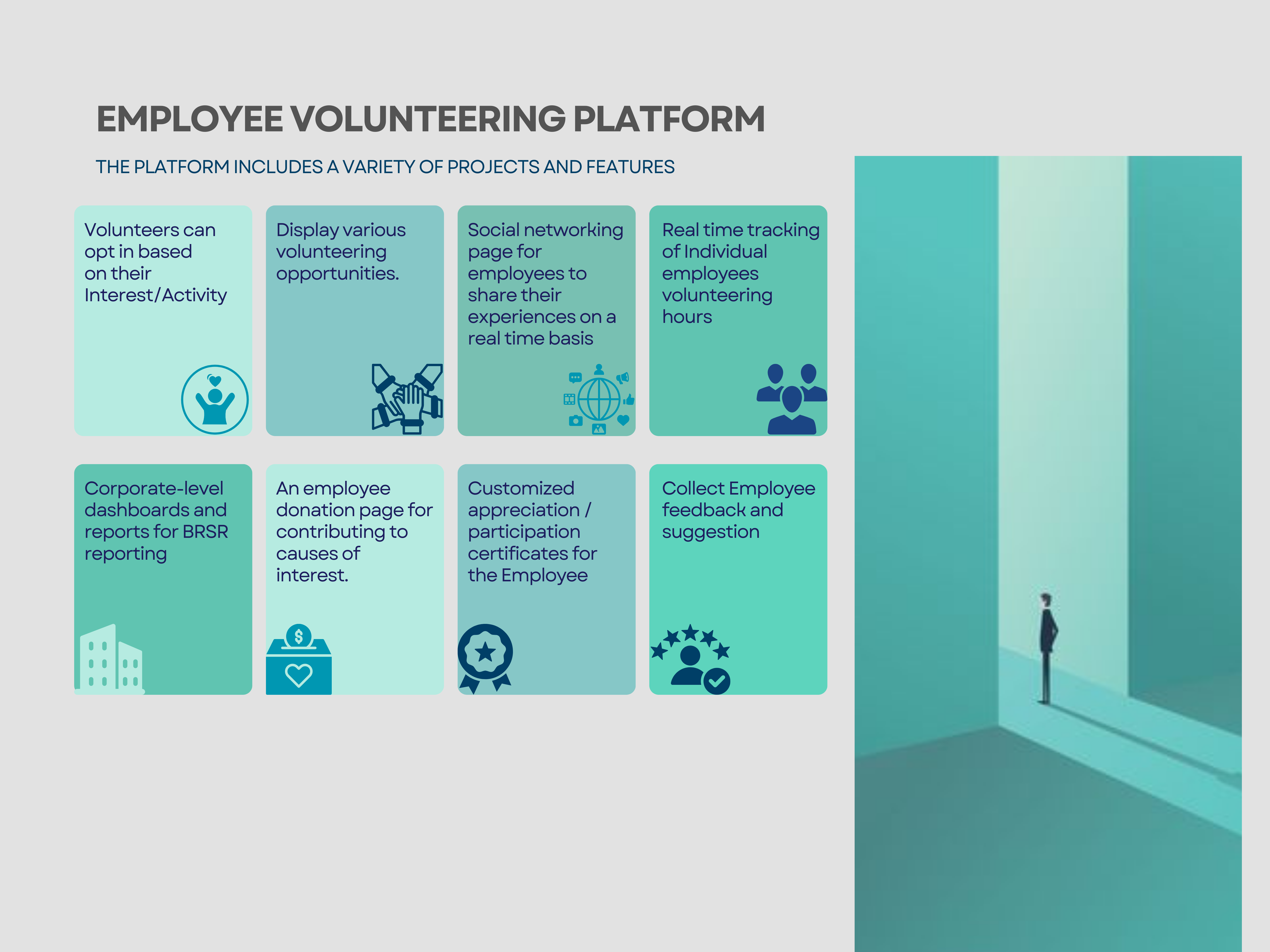
With over a decade-long legacy in the realm of employee volunteering, SoulAce brings unparalleled expertise to the table. Our seasoned team understands the intricate dynamics of corporate volunteering, allowing us to tailor solutions that align seamlessly with your company’s values and objectives.
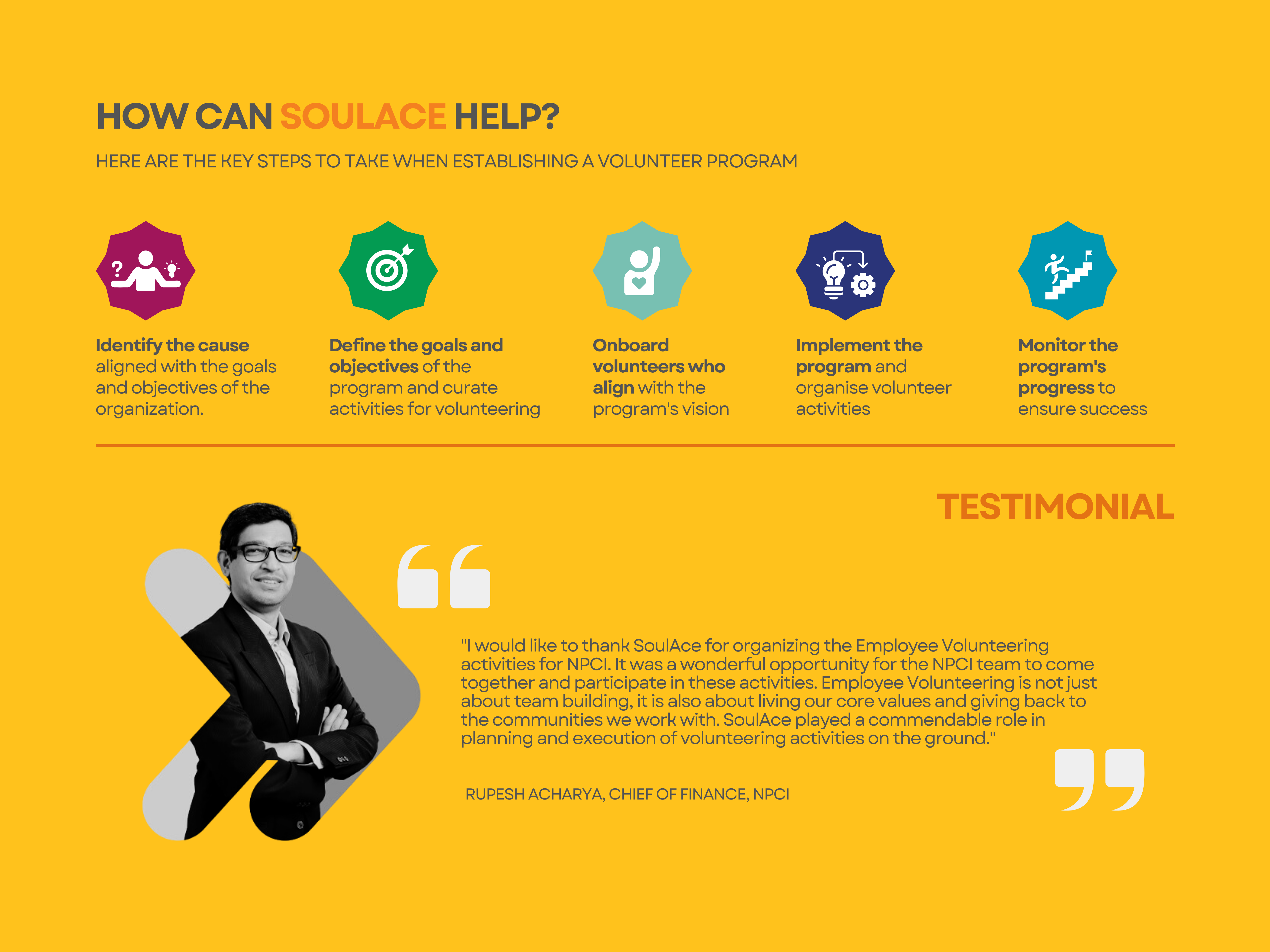
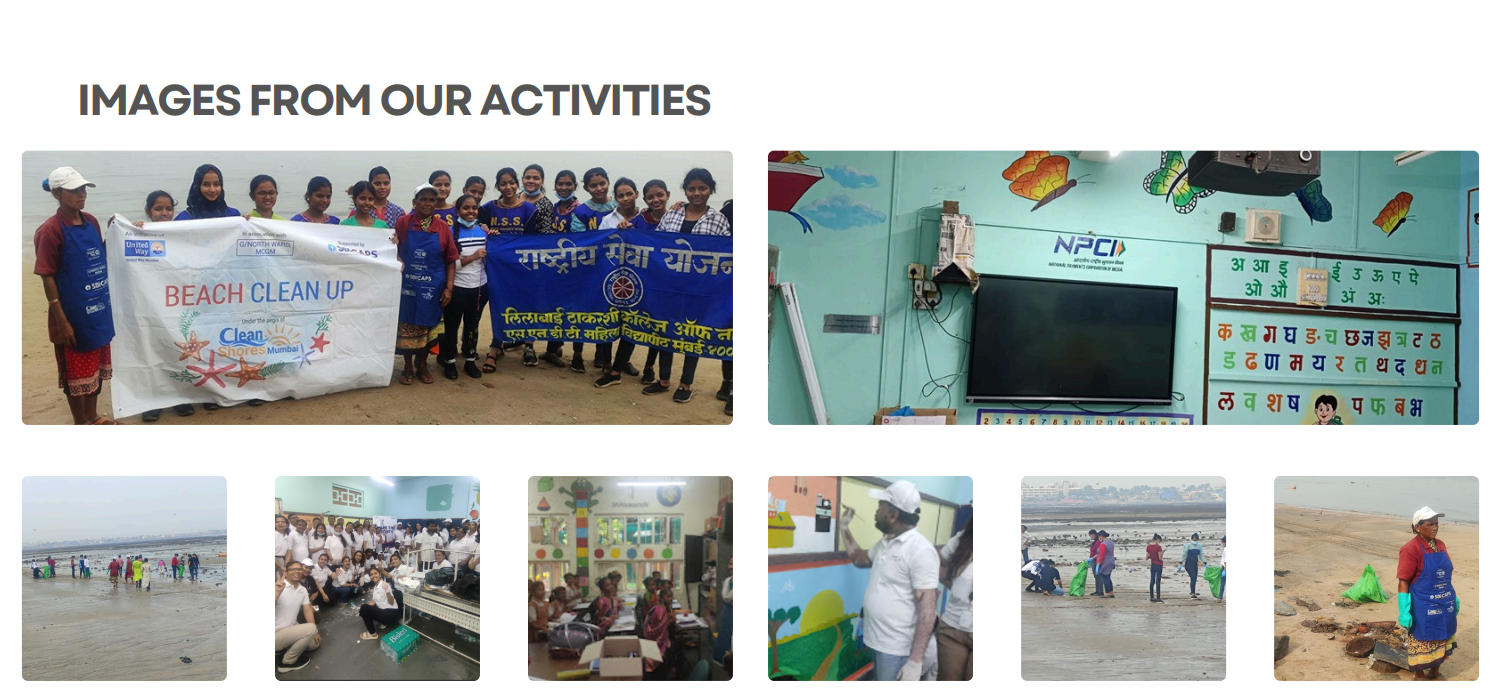
Employee volunteering, also known as corporate volunteering or workplace volunteering, refers to the practice where employees of a company or organization volunteer their time and skills to participate in community service or charitable activities.
Employee volunteering is important for several reasons. It allows employees to give back to their communities, fosters teamwork and camaraderie, enhances job satisfaction, develops new skills, and strengthens the company's reputation as a socially responsible organization.
To start an employee volunteering program, begin by identifying the goals and objectives of the program, gaining leadership support, engaging employees in the planning process, selecting volunteering opportunities that align with company values, and establishing a system for tracking and measuring the impact of volunteering efforts.
Employees can participate in a wide range of volunteering activities, including but not limited to environmental clean-ups, food drives, mentorship programs, skills-based volunteering projects, fundraising events, and disaster relief efforts.
Employee volunteering benefits the company in various ways, including improved employee morale and engagement, enhanced corporate reputation, strengthened employee retention and recruitment efforts, increased teamwork and collaboration, and positive impacts on the community.
Employee volunteering can be integrated into CSR initiatives by aligning volunteering efforts with the company's broader social and environmental goals, communicating the impact of volunteering activities to stakeholders, and incorporating volunteering metrics into CSR reporting.
Employees can be encouraged to participate in volunteering activities through various incentives and initiatives, such as offering paid volunteer time off (VTO), recognizing and rewarding employee volunteers, providing opportunities for skills development through volunteering, and highlighting the personal and professional benefits of volunteering.
Companies can measure the impact of employee volunteering by tracking metrics such as the number of volunteer hours contributed, the monetary value of employee volunteerism, the outcomes achieved through volunteering projects, employee satisfaction surveys, and feedback from community partners and beneficiaries.
Examples of successful employee volunteering programs include companies organizing volunteer events during company-wide service days, implementing skills-based volunteering initiatives where employees utilize their professional expertise to support nonprofits, and offering matching gift programs to amplify employee charitable contributions.

Employees can engage in virtual, hybrid, or physical form, depending on the requirements and nature of their contribution.

Employees make up an essential part of the framework that contributes towards a company’s CSR aims. In the present times, recruiting and retaining top-tier and motivated employees is ascertained also by its dedication towards its social responsibilities.